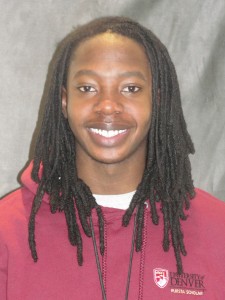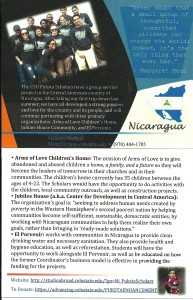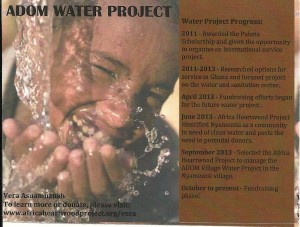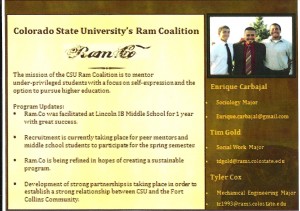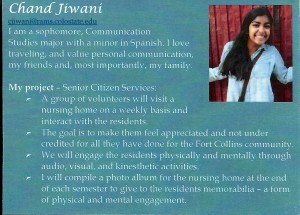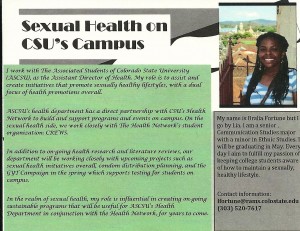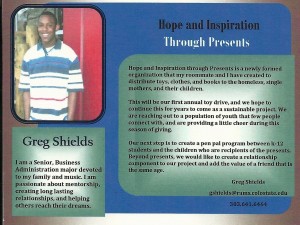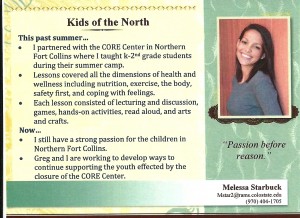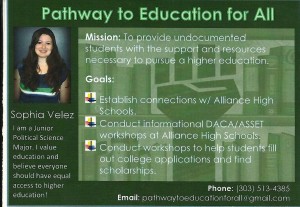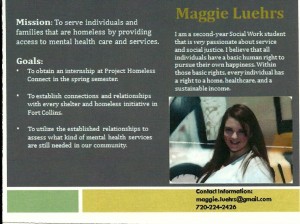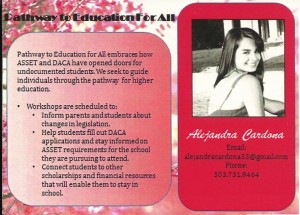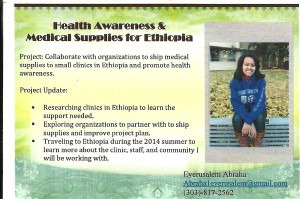
CU-Boulder undergraduate student Balkarn (Kern) Shahi is taking his knowledge of digital and information systems back to his hometown in Lafayette, Colorado, to help close the “digital divide” and other educational opportunity gaps for low-income students.
According to the 2013 census, one in four Americans does not have internet access at home, and those with the lowest median income rates are most affected. The digital divide problem in Lafayette puts low-income students at a disadvantage, a reality that hit close to home for Kern, who grew up in Lafayette and attended local public schools.
“When I was a senior at Centaurus High School, and people started applying to universities and for scholarships and grants, two of my friends came to my house to use our internet because they didn’t have it,” said Kern. “I was like, ‘Yo, just come over!’ We stayed awake until 1 or 2 in the morning applying to schools, FAFSA and everything. Then I got to CU and realized everyone here has access to the internet. I thought, ‘Wow, this is a serious issue about lack of opportunity and equity.’”
Kern, a junior majoring in information systems and finance and a Puksta Scholar, is strategically focused on bridging the digital divide for elementary school students at Alicia Sanchez Elementary School in Lafayette, a small neighborhood school serving some of the poorest neighborhoods in Boulder County.
“We are focusing our program, ConnectME, on addressing the digital divide at the elementary school level, because it’s one concrete way to help close the achievement gap,” said Kern. “Many of these students have never used a mouse, they don’t know how to work a computer. Their school testing now is all online and this is affecting their scores.”
Eighty-three percent of students at Alicia Sanchez qualify for free and reduced lunch, and 60 percent of students are from the Latino community. Many of these students are at a disadvantage in school because they do not have access to the internet at home.
“Without access to a device or Internet at home, our students are not able to practice at home the skills being presented at school,” said Lora De La Cruz, principal at Alicia Sanchez Elementary. “The digital divide is part of an opportunity gap, a homework gap and a learning gap. In order to close our achievement gap, we need to close our digital divide.”
Many Sanchez students also have older siblings at Centaurus high school, where 110 students – 10 percent – don’t have internet access at home. By focusing on the individual households with kids attending Alicia Sanchez Elementary, Kern believes his program will help high school students, too.
According to a recent article in the New York Times, many educators are pushing for students to use resources on the internet to complete class work and turn in assignments. “The federal government is now grappling with a stark disparity in access to technology, between students who have high-speed Internet at home and an estimated five million families who are without it and who are struggling to keep up,” the article states.
Boulder Valley School District now offers each student a Chromebook to take home and to keep after graduation.
“In Boulder County, devices aren’t an issue, but having internet access is,” said Kern.
Kern’s participation in the Puksta Scholars Program at CU-Boulder has enabled him to devote his time and energy to the ConnectMe project. A program of CU Engage, the Puksta scholarship funds more than a dozen CU Boulder students each year to create and carry out multi-year community engagement projects that address complex public problems.
ConnectME is collaborating with the Boulder Valley School District IT Department, school officials from Alicia Sanchez Elementary, Lafayette City Council Members and internet service providers Comcast and CenturyLink. The Connect ME program – which stands for “Connect My Education” – also receives support from the Sister Carmen Community Center in Lafayette.
“Although we are focused on reaching elementary students at Sanchez, the digital divide is not just an issue for students, it’s also for families,” said Kern. “For example, even applying for health care is now online. But students are the ones getting seriously hurt because their classmates have access and they don’t, which is a big problem contributing to the opportunity gap.”
Kern says he always knew he wanted to go to CU-Boulder, as both of his older sisters are alums.
“But the main reason I’m doing this project is because it hit me close,” he said. “Growing up in Lafayette, lots of my friends had this issue. I look back and think, ‘Wow, I wouldn’t be where I am if I didn’t have internet.’”
By Jennifer Ciplet, CU Engage Manager of Communications



